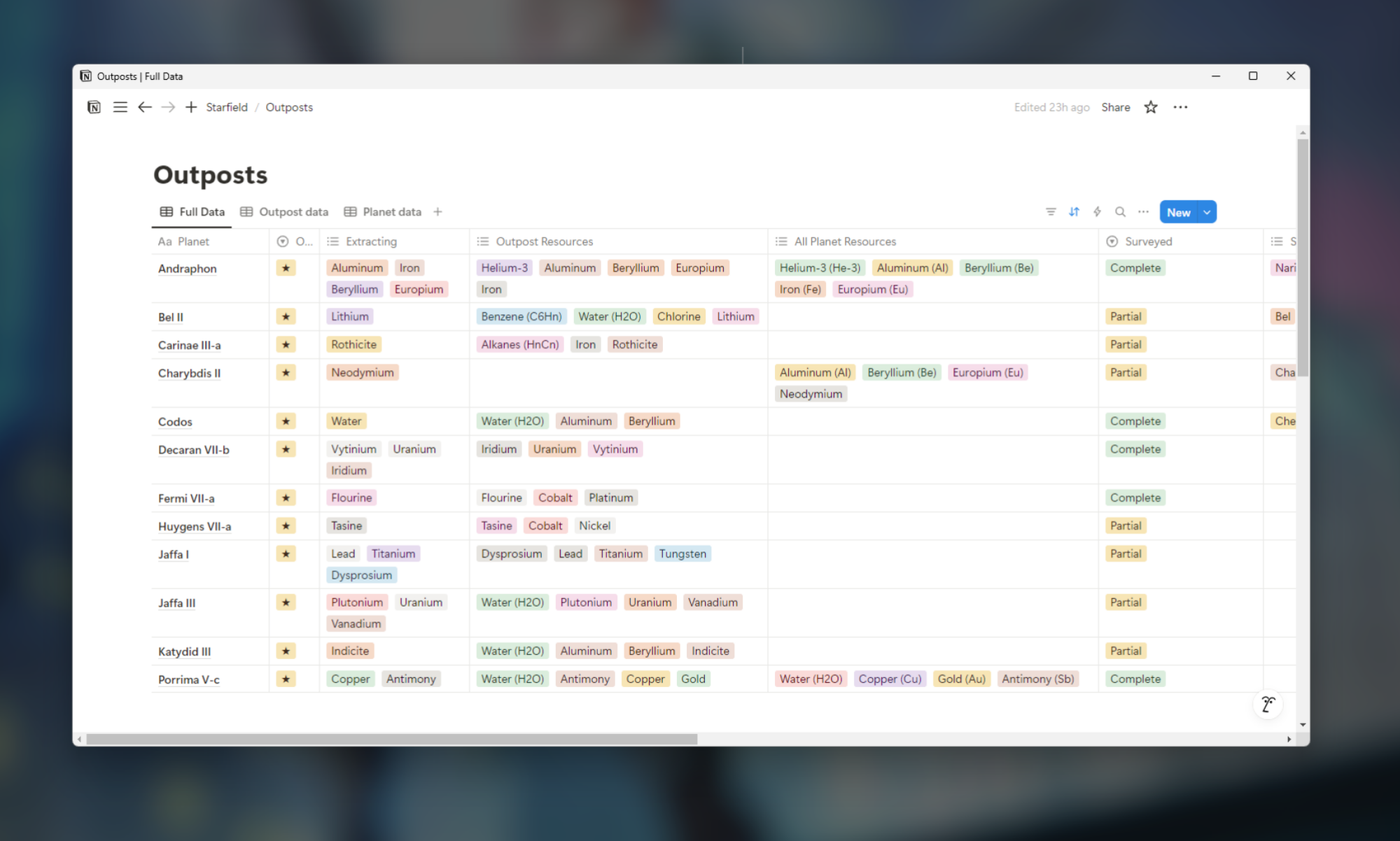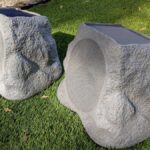Optimizing Gaming Through Spreadsheets
Hades II brings an innovative feature known as Forget-Me-Not, allowing players to bookmark crafting recipes for which they lack the required materials. While adventuring, paths to these resources will be illuminated, facilitating resource collection. This enhancement is particularly appealing, as it mirrors a system many have created through the use of spreadsheets to elevate their gaming experiences.
It’s important to note that not every gamer should feel compelled to replicate this method and develop a spreadsheet for each title played. In chaotic times, organizing data into charts can provide a sense of order, even when not every game necessitates such meticulousness.
For certain titles, keeping a personalized goal tracker can be invaluable, particularly in sandbox-style games, where quest markers merely scratch the surface of gameplay potential. Preferably, a standard Google Sheet can be utilized, but for those looking to enhance their setup, applications like Notion offer more adaptable options for tracking gameplay. Below are several practical applications of this approach.
Monitoring Tears of the Kingdom Armor Enhancements
Tears of the Kingdom is rich with armor sets, and locating every piece can yield great rewards in terms of exploration and unique abilities. However, upgrading existing gear brings its own challenges, as players must visit Great Fairies armed with specific rare ingredients, some of which may go unnoticed without prior knowledge (shoutout to Lizalfos tails).
To tackle this, an armor upgrade tracker was created. This tool categorizes which sets are of greatest interest, the number of pieces still unclaimed, current upgrade levels, and details about set bonuses still waiting to be unlocked. Though much of this information is available in-game, having it conveniently compiled prevents unnecessary menu navigation.
Additionally, there is a section to jot down required ingredients for each upgrade, which is incredibly useful. While nearly everything found in Tears of the Kingdom serves a purpose in armor upgrades, recalling the specifics can be challenging. In-game visits to the Great Fairy are the only means to check required ingredients.
This system minimizes wasted time, as adventurers can quickly refer to their notes to determine if they need particular items when encountered. This not only serves as a handy reference but also helps prevent unnecessary farming expeditions for items like Thunderwing butterflies that were unfortunately overlooked hours earlier.
Managing Outposts in Starfield

Despite some gripes about Starfield, the desire to construct extensive outposts for resource farming has led to numerous hours spent. While crafting outposts may seem trivial due to the straightforward accessibility of resources, the joy of building personal mini-economies cannot be underestimated. However, managing numerous outposts can be cumbersome.
This is where a Notion table becomes essential. It allows for a quick reference detailing the resources found on each planet, what is harvested at each outpost, and the current status of resource harvesting. Since players receive bonuses for fully surveying planets, tracking survey completion is also included. Though a template wasn’t created, guidance can be found on Notion’s help page as well as various YouTube tutorials for additional assistance.
While the organization of outposts may seem Sisyphean, this effort can be gratifying. Similar approaches have been applied to games like Stardew Valley, which have clearer objective goals.
Notion was chosen for this task due to its more sophisticated database functionality compared to Google Sheets. Creating comprehensive databases that can be viewed through different lenses allows for better management. For instance, data on flora and fauna may not be necessary while focusing on outpost management, allowing for a tailored view emphasizing only relevant data.
Assessing Time Investment in Overwatch 2
Among the many spreadsheets developed, few have caused as much frustration as this tool for Overwatch 2. The transition to a battle pass system with time-sensitive rewards necessitated knowledge of just how long it would take to obtain certain prizes.
A time calculator was created to track average game lengths and corresponding XP gained for each match. Specific boxes calculate total playtime required to reach reward tiers based on accumulated XP. By filling in a few highlighted fields, the total time commitment for a cosmetic reward can be quickly assessed.
The intention was never to deter playtime; an affinity exists for playing with friends in Overwatch 2. However, the spreadsheet serves as a reality check. When faced with a prompt stating “You are just 50,000 XP away from a reward!” the temptation to continue playing can grow. Instead, the calculator might reveal “You must play 41 additional hours to achieve that reward,” offering a moment of reflection that leads to closing the game.
This tool has effectively curtailed the “Just one more game” mindset, which can be so addictive. Modern online games frequently employ various manipulation techniques to encourage further play for small rewards. Although not originally designed to save time, this calculator proved more honest than the game itself.
Additional Spreadsheet Concepts
The examples above are merely a glimpse into the numerous sheets created over time. For instance, spreadsheets have been created to forecast Stardew Valley crop yields, making decisions at Pierre’s store less daunting. (It’s worth noting that this approach is not unique.) Similar trackers have also been used for games ranging from Skyrim to Horizon Forbidden West.
Even for those who prefer not to create personal spreadsheets, ample resources exist online. Other players have developed intricate spreadsheets that can address queries like the impact of armor buffs on favorite characters. Whenever there’s a need for calculations not covered by the game or repeated searches for resources, the trusty spreadsheet remains an invaluable ally.












